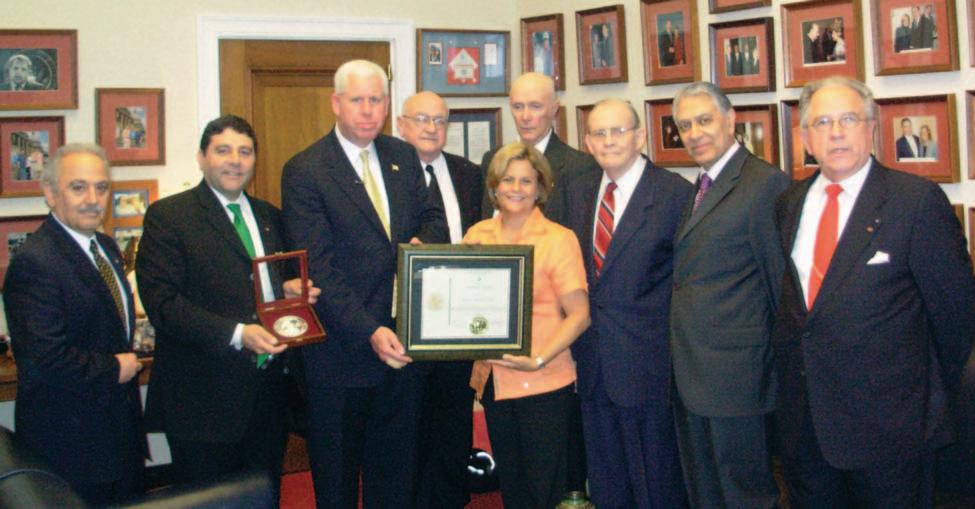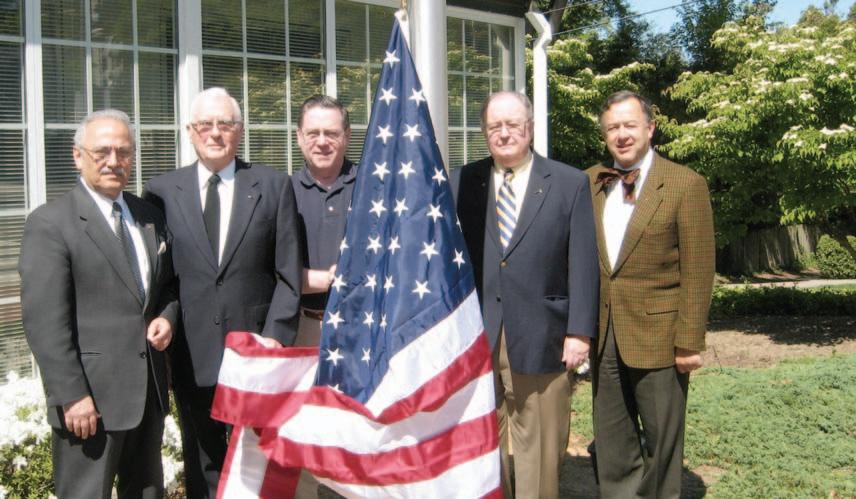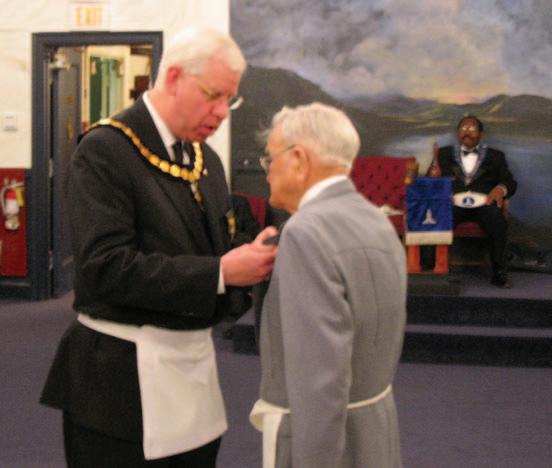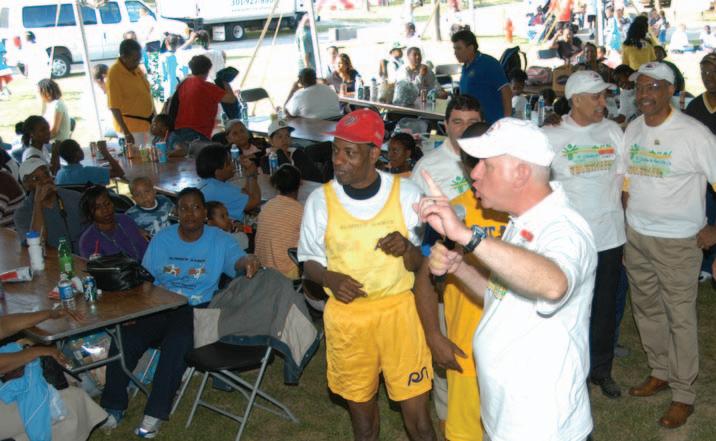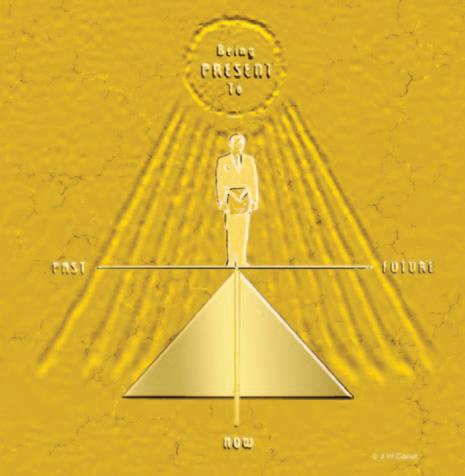
7 minute read
The Highway of Masonry
The highway of Masonry is strewn with guide-books and placarded with sailing directions for the traveler in his voyage of life, and they have for a common foundation the sacred maxim, “Do unto thy neighbor as thou wouldst that he should do unto thee.” Upon this golden hinge Freemasonry rests and revolves.
Along this highway we find no finger-post marked selfishness. Now, I believe a large proportion of Masons are honest and fairly unselfish in all they say or do, but many are not, for they only seek to promote their own individual interests. One may have a pet scheme that is not indorsed, another gratifies the longings of a selfish ambition, and both oppose measures that would be of undoubted benefit to the Craft. They are selfish.
Others arc often disputatious, self-opinionated, and obstructive in their course of action; if these were less selfish, and were actuated by an earnestness to further the interests of the order, this unhappy condition would not occur, for they would be found acting more in harmony with each other.
Petty quarrels arising from trivial causes are the shame of Masonry. What is the probable result? Aesop answers: “In quarreling about the shadow we often loose the substance.”
Many guide-boards are found along the Masonic highway. One reads temperance, and suggests reflections. Temperance is synonymous with moderation, and when restricted to the appetite means moderate use as opposed to abuse, and is in contradistinction to total abstinence. From the earliest times Masonry has had an intimate association with conviviality, hence the appointment of Stewards to provide the repast, and the selection of the Junior Warden to prevent excessive indulgence. Until recently all the English Lodges were held at some public house, and this custom now attains to a considerable extent.
In several countries I have found the lodge equivalent to a club, where labor and refreshments were conducted with a propriety that made the plan commendable. At Edinboro (Edinburgh) I visited Canongate Kilwinning Lodge, of which at one time Burns was the Poet Laureate,
J. Mills Browne, PGM Grand Lodge of California
and Johnson Boswell the Master. The lodge room, furniture, and minor equipment have an age of more than two hundred years. Permanent tables for refreshment are upon the floor of the Lodge, while the Stewards department in the West gives evidence that their vocation is not that of tolerable repose, but of decided activity. In looking over the minutes of this Lodge, I found that one bill was regularly presented and ordered to be paid; it itemized sugar, lemons, and whiskey.
In the By-Laws of ye Royal Cumberland With courage, strength, Lodge, held at ye and confidence in his Bear, in 1746, we life, a brother, broad and read: “If a Brother is found distempered liberal in mind and genwith drink, he shall be erous in heart, will admonished to go rectify an error, peacefully home; which, if he refuses, acknowledge a wrong, he shall be turned out and forgive an injury. and taken care of with as little disturbance as possible, and fined two shillings, except, the Lodge vote him excus’d from this fine.” So much for Masonry in ye olden time. In our day are social gatherings, when conducted with moderation or temperance, productive of harm? I think not. From labor to refreshment is natural. These occasions enable the interchange of friendly opinions, old friendships are renewed, and new ones are formed. Besides, social enjoyment and temperate conviviality are harmonious with charity. At these assemblies if an application for alms be made, it is likely to be cheerfully responded to by those who vividly remember the wants of those who are not so fortunately circumstanced as themselves. Epicures hath said, “The origin and root of all good is the pleasure of eating.”
Metrodoms, the philosopher, used bluntly to say that ‘’conversation which takes a natural turn finds all its interest in belly.” It is certain that to the average man the
world seems very round after a good repast. A full stomach makes a ready giver.
The temperance inculcated by Masonry is not confined to the pleasures of eating and drinking. In all things it enjoins moderation. “It is not different from what Paul meant in insisting that young men should be sober minded. It signifies to think sanely, soundly, and temperately. It implies the subordination of the passions to reason, of hot impulses to cool judgment in our thinking.”
Further along the highway is a guide-board on which is inscribed Prudence. Plato in his list of cardinal virtues substitutes the word Wisdom for Prudence. Prudence is the common policy of all Lodges, since it should regulate the expenditure of their funds. With it there must be the right application of money, wise, economical, watchful, honest. Employ it in the every-day life of a Mason, and the disastrous effect of reckless speculation will not take the place of legitimate industry. Its exercise will prevent the coming of a conclusion while conscious of any strong bias of the emotions. It will equally prevent hasty speech and reckless acts in passion. Its use in and out of the Lodge will save a world of mistakes and regrets.
Yet further along the highway is a guide-board marked Fortitude. The corresponding cardinal virtue of Plato is called Courage. Fortitude, or courage, is an essential requirement of the Masonic organization. It means determination, zeal, enthusiasm, devotion, personal effort, and, in all that pertains to the Lodge, a directness of purpose. In the daily life of Masonry it fortifies the brother to dare to think, to speak, and to do the right, and when new duties and responsibilities which demand independence of thought and self-reliance of character are encountered, he triumphs because he is strong-hearted and practical. With courage, strength, and confidence in his life, a brother, broad and liberal in mind and generous in heart, will rectify an error, acknowledge a wrong, and forgive an injury. There is nothing like courage even in ordinary things. “To see ourselves as others see us is proverbially difficult. To see ourselves as we are is a greater difficulty.” We do not think it difficult to ascertain the actual worth of others. “Every man,” according to an ancient legend, “is born into the world with two bags suspended from his neck — a small bag in front full of his neighbors’ faults, and a large bag behind filled with his own faults. Hence it is that men are quick to see the faults of others, and yet are often blind to their own failings.”
Other guide-boards are placed along the highway, among which is one bearing the name Justice. This, masonically interpreted, means an inexhaustible sense of justice to others, or rather a sympathizing equity, which rises above the dry rigidity of barren justice. Judicial calmness, impartiality, and balance of mind are essential qualifications for the Master of a Lodge. What may be called “the judicial temper and habit of mind” is a cardinal virtue that every Mason ought to possess. It considers both sides, listens to its opponent, and it rarely happens that something cannot be said on either side that would modify the feelings, if it should not change the convictions, of the opposite side. “The judicial temper is a moral rather than a mental quality. Conscience is its vital principle. It may be cultivated into a habit, and so infuse its peculiar temper into all the activities of the mind.”
Experience in Lodge difficulties shows that before pronouncing judgment it is but simple justice to all concerned that an endeavor should be made to arrive at the truth, and it must be remembered that truth may be kaleidoscopic, varying with the media through which it is received.
A severe illustration is had in the inscription over the portal of a Council House in Germany:
One man’s word is no man’s word; Justice needs that both be heard.
Note: These remarks were extracted from an address to the Grand Lodge of the District of Columbia by MWB J. Mills Brown on November 7, 1882. His appearance was arranged by Grand Master Noble L. Larner, who explained that in an attempt to compensate for the lack of lectures at the Grand Visitations of lodges meeting in the “Temple,” he had invited Past Grand Masters Browne (California) and Simons (New York) to address a general gathering of the brethren in the Music Hall of the Temple.



